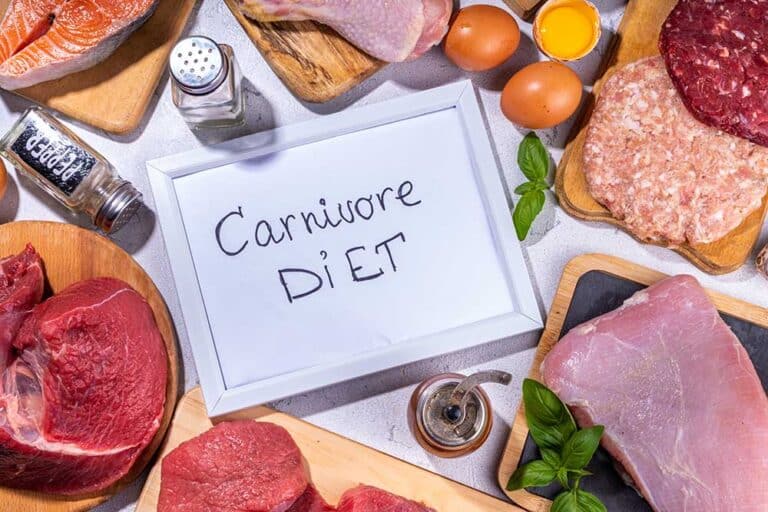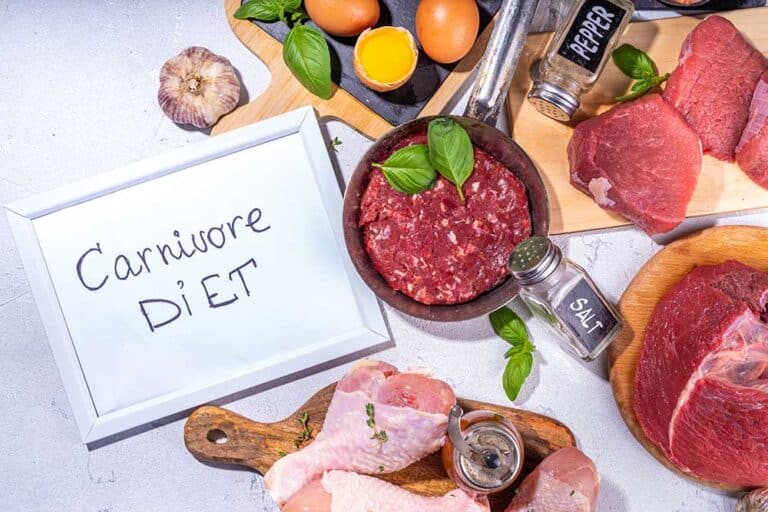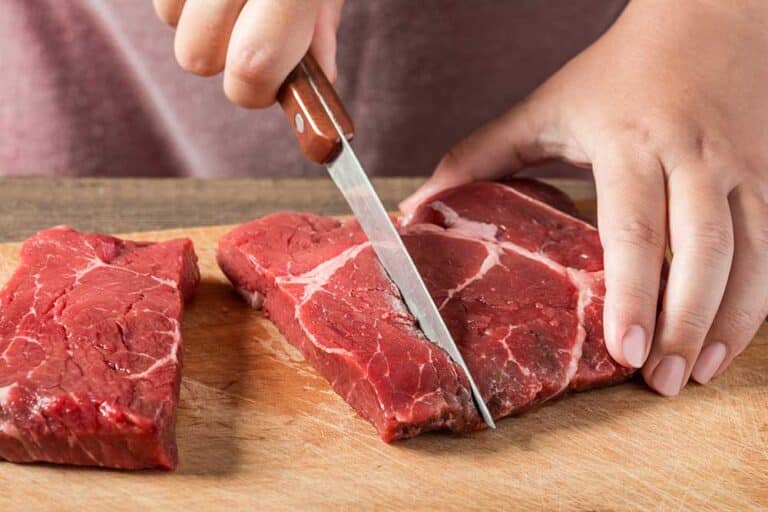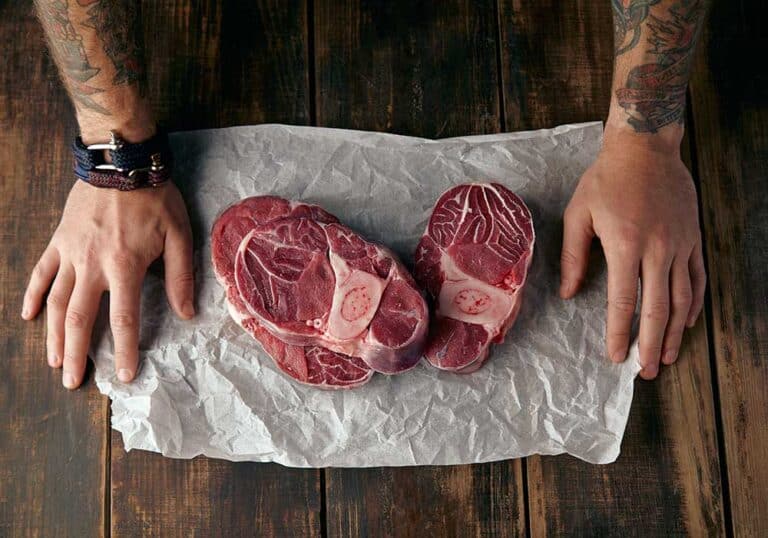Understanding the Carnivore Diet
Basics of the Carnivore Diet
The carnivore diet is a dietary regimen that focuses exclusively on animal-based foods. This includes various types of meat, fish, poultry, eggs, insects, and organ meats. It excludes all plant-based foods such as fruits, vegetables, grains, nuts, and seeds (Dr. Marc Method). The foundation of the diet rests on the belief that human beings are adapted to thrive on an animal-based diet, reflecting our hunter-gatherer ancestors’ eating habits.
Key components:
- Animal Meat: Beef, pork, lamb, poultry.
- Fish: Salmon, sardines, mackerel.
- Eggs: Chicken eggs, duck eggs.
- Dairy: Certain adherents include dairy like cheese and butter.
- Organ Meats: Liver, kidney, hearts.
For more detailed food options, you can refer to our carnivore diet foods list.
Benefits and Drawbacks
The carnivore diet offers several benefits but also poses significant drawbacks that should be considered before adopting this eating style.
Benefits
- Simple Food Choices: With limited food options, meal planning can become simpler.
- High in Protein: Animal products are rich in protein and essential nutrients, which are essential for muscle building and overall health.
- Anti-Inflammatory: Some proponents claim it helps reduce inflammation due to the elimination of potential food allergens found in plant-based foods.
- Weight Loss: For some individuals, the high-protein, low-carb nature of the diet could potentially aid in weight loss. Visit our carnivore diet weight loss for more insights.
| Potential Benefits | Description |
|---|---|
| Simple Choices | Limited options simplify meal planning |
| High Protein | Rich in muscle-building nutrients |
| Anti-Inflammatory | May reduce inflammation |
| Weight Loss | Potential aid in losing weight |
Drawbacks
- Nutrient Deficiencies: The exclusion of plant-based foods results in a lack of important nutrients like fiber, vitamins, and antioxidants (Healthline).
- High Saturated Fat: Diets high in saturated fat can elevate the risk of heart disease and high cholesterol (Dr. Marc Method).
- Constipation: The absence of dietary fiber can lead to digestive issues such as constipation and poor gut health.
- Cancer Risk: Increased consumption of red and processed meats has been linked to higher risks of colorectal cancer.
| Potential Drawbacks | Description |
|---|---|
| Nutrient Deficiencies | Lack of fiber and essential vitamins |
| High Saturated Fat | Risk of heart disease and high cholesterol |
| Constipation | Digestive issues from lack of fiber |
| Cancer Risk | Higher risk of colorectal cancer |
The carnivore diet’s restrictive nature is not recommended by most experts unless followed for addressing specific medical conditions. For more information on potential downsides, read about carnivore diet side effects.
Nutritional Components of the Carnivore Diet
Protein and Essential Nutrients
The carnivore diet primarily involves consuming animal-based foods like meat, fish, poultry, eggs, and organ meats. This diet is high in protein and provides essential nutrients necessary for body function.
Protein: The carnivore diet is abundant in high-quality protein, which is crucial for muscle building, repair, and overall bodily function. Protein is broken down into amino acids, which are vital for numerous body processes.
Fats: The diet is also rich in fats, including saturated fats. These fats provide energy and aid in the absorption of fat-soluble vitamins (A, D, E, and K).
Vitamins and Minerals:
- Vitamin B12: Found in meat and fish, essential for nerve function and blood cell production.
- Iron: Abundant in red meat and organ meats, crucial for oxygen transport in the blood.
- Zinc: Found in varying amounts in meat and seafood, important for immune function and DNA synthesis.
| Nutrient | Sources | Benefits |
|---|---|---|
| Protein | Meat, Fish, Eggs | Muscle repair, enzyme function |
| Vitamin B12 | Beef, Fish | Nerve function, blood cell production |
| Iron | Red Meat, Organ Meats | Oxygen transport, energy production |
| Zinc | Meat, Seafood | Immune function, wound healing |
Despite these benefits, the carnivore diet eliminates plant-based foods, making it critical to understand potential nutrient deficiencies.
Potential Nutrient Deficiencies
The carnivore diet excludes all plant-based foods, which can lead to several potential nutrient deficiencies.
Fiber: The absence of plant foods means no dietary fiber, which is important for digestive health. Lack of fiber can lead to constipation, gut bacteria imbalance, and inflammation in the gut (Healthline).
Vitamin C: Not abundant in animal products, risking deficiency, which is important for immune function, skin health, and antioxidant protection.
Antioxidants and Phytochemicals: Plant foods are rich in antioxidants like vitamin C and other phytochemicals, which the carnivore diet lacks. The absence of these compounds might increase the risk of chronic diseases such as heart disease and cancer (Healthline).
Potential Health Concerns:
- Increased LDL Cholesterol: High consumption of animal fat, especially saturated fat, can lead to elevated LDL cholesterol levels, increasing the risk of cardiovascular diseases (Harvard Health Publishing).
- Lack of Plant Nutrients: Excludes beneficial plant compounds that help in preventing diseases like Alzheimer’s, type 2 diabetes, and certain types of cancer.
For a comprehensive list of carnivore diet foods, visit our carnivore diet foods list. To see how this diet compares with others like keto and paleo, check out our upcoming sections on contrasting these diets. Understanding the components of the carnivore diet can help you make an informed decision about its suitability for your health goals.
Comparison with Other Diets
Contrasting the Carnivore Diet
The carnivore diet, characterized by the exclusive consumption of animal-based foods, stands in stark contrast to other popular dietary regimens such as the keto and paleo diets. Understanding these differences can provide insight into carnivore diet rules and their potential impacts on health.
The primary distinction of the carnivore diet lies in its restrictive nature, focusing solely on meat, fish, and animal products, and excluding all plant foods. This contrasts sharply with the keto and paleo diets, which allow for a variety of food groups.
| Feature | Carnivore Diet | Keto Diet | Paleo Diet |
|---|---|---|---|
| Primary Composition | Animal-based foods | High fat, moderate protein, low carb | Lean meats, fish, fruits, vegetables, nuts, seeds |
| Macronutrient Emphasis | Protein, Fat | Fat (70-80%), Protein (20-25%), Carbs (5-10%) | Protein, healthy fats |
| Exclusions | All plant-based foods | High-carb foods, sugary items, grains | Grains, dairy, legumes, refined and processed foods |
| Nutrient Concerns | Potential nutrient deficiencies due to lack of plant-based nutrients | Potentially raises LDL cholesterol levels | Higher in micronutrients from a wider variety of foods |
Benefits of Keto and Paleo Diets
Both the keto and paleo diets offer unique benefits that set them apart from the carnivore diet.
Keto Diet
The keto diet aims to achieve ketosis, a metabolic state where the body burns fat for energy instead of carbohydrates. This diet involves minimal carb intake, with the majority of calories coming from fat and an adequate protein intake. Benefits reported by keto practitioners include:
- Mental Clarity: Enhanced cognitive functions due to stable blood sugar levels.
- Improved Energy Levels: Steady energy release without the highs and lows associated with carb-heavy diets.
- Weight Loss: Effective fat burning, leading to significant weight reduction.
- Lowered Blood Pressure and Cholesterol: Positive impacts on cardiovascular health.
Paleo Diet
The paleo diet emphasizes consuming foods that our prehistoric ancestors would have eaten, focusing on whole, unprocessed foods. This diet aims to return to a more natural way of eating, believed to be more in tune with human evolutionary requirements. Benefits of the paleo diet include:
- Increased Energy Levels: Higher vitality due to nutrient-dense foods.
- Better Sleep: Improved sleep patterns associated with less processed food intake.
- Lean Muscles and Toned Physique: Due to the diet’s emphasis on lean meats and exercise.
- Micronutrient Rich: High in vitamins and minerals from a varied diet, which can contribute to overall health (Beck & Bulow).
For those considering the carnivore diet, understanding these comparisons and benefits of other diets can help in making informed decisions. To explore more carnivore diet meal options, visit our carnivore diet meal plan section.
Safety Considerations
Risks and Side Effects
Following the carnivore diet entails adhering to a stringent regimen that excludes all foods except meat, fish, eggs, and certain dairy products (carnivore diet foods list). Such a high-protein, high-fat diet can result in several risks and side effects, which individuals should consider before embarking on this dietary path.
Common Side Effects
- Diarrhea: Due to the high-fat content in the diet, some people may experience digestive issues, including diarrhea.
- Headaches and Nausea: The sudden elimination of carbohydrates can lead to withdrawal symptoms such as headaches and nausea.
- Decreased Energy Levels: Adaptation to this high-fat regimen can result in initial fatigue and low energy levels.
- Elevated LDL Cholesterol Levels: Diet rich in animal fats can raise LDL cholesterol, increasing the risk of heart disease or stroke.
Suitability for Certain Individuals
The carnivore diet may not be suitable for everyone. While some individuals report positive results, such as improved mental clarity and weight management (carnivore diet results), others may experience serious health risks. Here are key considerations for specific groups of individuals:
Suitable Candidates
- Individuals Seeking Weight Loss: Some may find the structured regime helpful in managing their weight (carnivore diet weight loss).
- People with Autoimmune Diseases: Reports suggest individuals with autoimmune conditions might find relief from certain symptoms by eliminating plant-based foods.
Not Recommended For
- People with Heart Conditions: Those with existing heart problems may need to monitor the potential rise in LDL cholesterol levels.
- Individuals with Kidney Issues: High protein intake can strain the kidneys, a risk for those with pre-existing kidney conditions.
- Diabetics: The diet’s effect on insulin sensitivity varies; diabetics should approach with caution and medical advice.
To understand the complete dietary rules, visit our guide on carnivore diet rules. For individuals considering this diet, it’s essential to weigh the pros and cons and consult healthcare practitioners to ensure it aligns with their health goals and conditions. For more meal suggestions, explore our carnivore diet meal plan and approved carnivore diet recipes.
Meal Options on the Carnivore Diet
Approved Food Choices
Individuals adhering to the carnivore diet rules are limited to consuming animal-based foods. The primary components of this diet include various types of meat and a few select dairy products.
Approved food choices encompass:
- Meats: Beef, chicken, pork, lamb, turkey
- Seafood: Salmon, sardines, white fish
- Organ Meats: Liver, kidneys, heart
- Dairy: Small amounts of heavy cream, hard cheese
- Fats: Butter, lard, tallow, bone marrow
- Eggs: Eggs are versatile and high in protein (7 grams per egg), fat (5 grams), and calories (75 per egg) (Carnivore Snax)
Seasonings like salt and pepper are allowed, and some proponents of the diet accept seasonings with no carbs, such as garlic and cumin (WebMD).
| Food Type | Examples |
|---|---|
| Meats | Beef, chicken, lamb |
| Seafood | Salmon, sardines, white fish |
| Organ Meats | Liver, kidneys, heart |
| Dairy | Heavy cream, hard cheese |
| Fats | Butter, lard, tallow |
| Eggs | Whole eggs |
| Seasonings | Salt, pepper, garlic |
For more detailed information on what foods are allowed, visit our carnivore diet foods list.
Preparation and Cooking Methods
Proper preparation and cooking methods are essential for those following the carnivore diet to ensure nutrient preservation and optimal taste. Here are some recommended methods:
- Grilling: Ideal for cooking meats like steak or chicken breasts.
- Roasting: Suitable for whole chickens, turkey, and large cuts of beef.
- Baking: Recommended for fish and certain organ meats.
- Frying: Using animal-based fats like butter, lard, tallow, or ghee enhances the taste (Carnivore Snax).
- Slow Cooking: Suitable for tougher cuts of meat, making them tender and flavorful.
It’s important to note that using animal-based fats for cooking aligns with the principles of the carnivore diet and enhances the flavor of lean cuts of meat.
For a variety of recipe ideas and detailed preparation methods, visit our section on carnivore diet recipes.
Ensuring a rich and diverse array of meal options can help maintain enjoyment and adherence to the diet while maximizing the potential health benefits. For other diet comparisons and their relative benefits, see our article on comparison with other diets.
Impact on Weight and Health
The carnivore diet is renowned for its prominent emphasis on meat and animal products, completely excluding plant-based foods. This dietary approach can significantly impact both weight management and long-term health.
Weight Management Effects
The high-protein and low-carbohydrate nature of the carnivore diet contributes to its potential effects on weight management. Protein-rich foods are known to increase feelings of fullness, which can lead individuals to consume fewer calories overall (Healthline). This satiety factor, combined with the reduced intake of carbohydrates, can promote weight loss.
Short-Term Weight Loss
Studies have shown that increasing the intake of protein and fats can lead to weight loss and make it harder for individuals to regain lost weight. For instance, a 2021 study involving 2,029 people following carnivore-style diets reported reductions in body mass index (BMI) among participants (Health.com). The restrictive nature of the diet, similar to that of the keto diet, may result in short-term weight loss.
Potential Weight Management Benefits
| Benefit | Description |
|---|---|
| Increased Satiety | High protein content leads to longer-lasting feelings of fullness. |
| Reduced Caloric Intake | Limited food choices may naturally reduce the total calorie intake. |
| Improved Lean Muscle Mass | High-protein diet supports muscle maintenance and growth. |
For those interested in meal planning on this diet, our carnivore diet meal plan might be beneficial.
Long-Term Health Implications
While the carnivore diet may offer some short-term benefits, its long-term effects on health raise some important considerations.
Nutrient Deficiencies
An all-meat diet can lead to potential nutrient deficiencies due to the lack of a wide variety of foods. Essential vitamins and minerals commonly obtained from plant sources, such as vitamin C, fiber, and certain antioxidants, may be missing from the carnivore diet. This can impact overall health negatively in the long run.
Health Risks
Adverse effects on health, including elevated LDL cholesterol levels, have been noted. Diets high in animal products may increase the risk of heart disease and stroke (WebMD). Participants may also experience side effects like diarrhea, headaches, nausea, and decreased energy levels due to the altered balance of gut bacteria.
Risks:
- Elevated LDL Cholesterol Levels
- Increased Heart Disease and Stroke Risk
- Gastrointestinal Issues
Diabetes Management
Interestingly, the carnivore diet has shown positive effects for certain individuals with diabetes. In a 2021 study, participants with type 2 diabetes reported reduced levels of hemoglobin A1c (HbA1c) and a significant reduction in diabetes medication use (Health.com). However, these findings should be approached with caution, given the diet’s restrictive nature.
For an in-depth look at approved food choices on the carnivore diet, refer to our comprehensive guide.
By considering these factors, individuals can make informed decisions about whether the carnivore diet aligns with their health goals and lifestyle. It’s essential to consult healthcare professionals before making significant dietary changes. For additional insights, explore carnivore diet results and carnivore diet benefits.
- About the Author
- Latest Posts
Johnnie D. Jackow Sr., the founder and CEO of Total Body Fitness, Worldwide, has a long-standing career in the fitness industry. He began as a certified personal trainer in the mid-90s and soon after authored his first weight loss book in 1998. This led to the launch of Total Body Fitness, Nationwide in the USA at the same time. Johnnie gained recognition as the fitness guru of his time, running infomercials on local TV late at night in Houston, Texas. Over the years, he has helped more than 40,000 individuals from all over the world achieve their health and fitness goals. With over 60,000 hours of documented training in integrative functional medicine, he completed his PhD in human physiology in 2010. His primary objective is to assist people in reaching their health and fitness goals through alternative approaches rather than relying solely on conventional medicine and pharmaceutical drugs. Today, with almost three decades of experience under his belt, Johnnie continues to be a leader in health and fitness.








